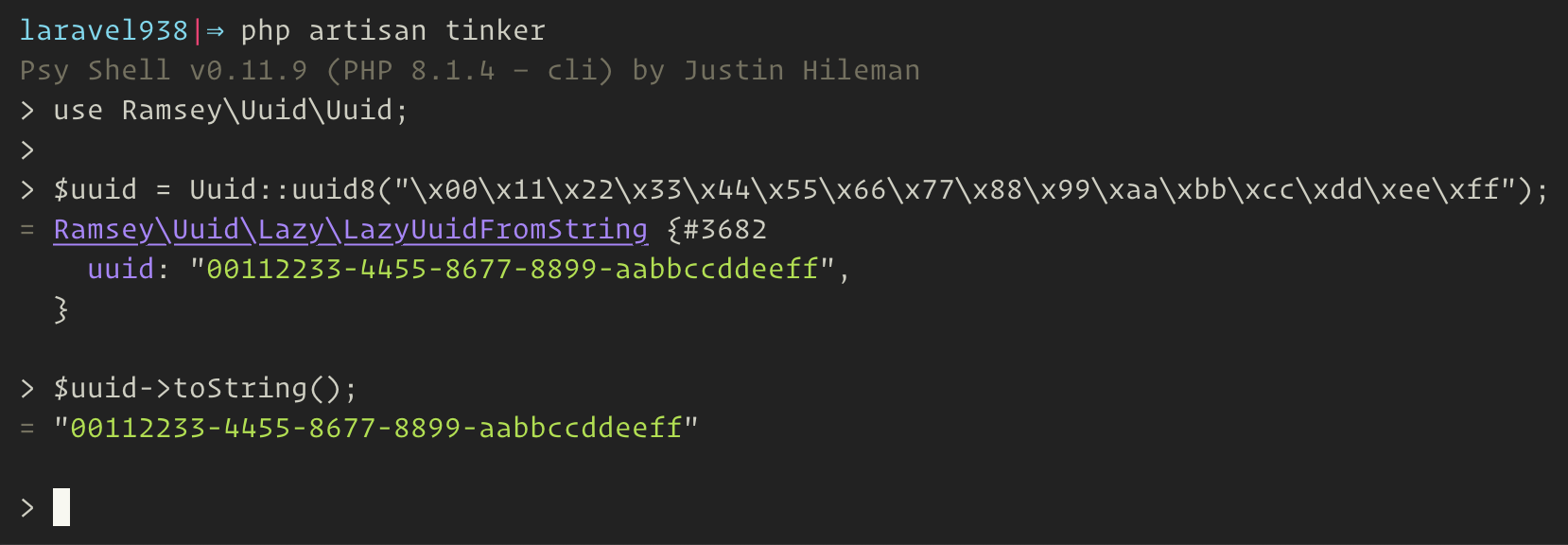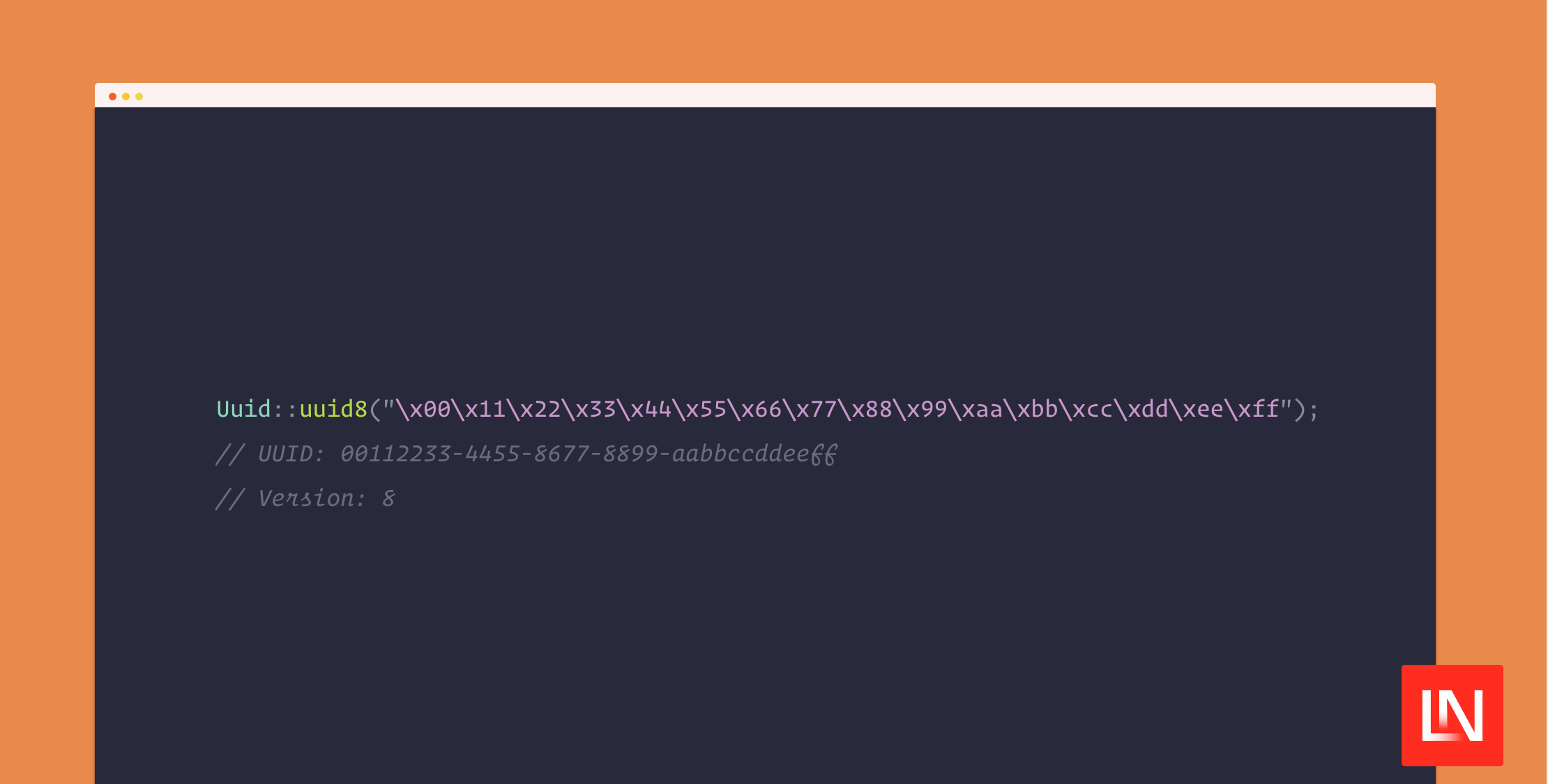The popular PHP UUID library by Ben Ramsey released a new version with support for UUID v8, custom UUIDs:
I just published version 4.6.0 of ramsey/uuid from #LonghornPHP!
— Ben Ramsey 🇺🇦 (@ramsey) November 6, 2022
It includes support for version 8, custom UUIDs, and it ensures monotonicity in version 7, Unix Epoch time UUIDs.https://t.co/MkIvBsRhol
Read more about version 8 UUIDs here: https://t.co/8IbHyfP9gW
Cheers!
The UUID package implements the UUID v8 draft spec, which outlines a few potentials reasons one might consider using UUID v8:
- An implementation would like to embed extra information within the UUID other than what is defined in this document.
- An implementation has other application/language restrictions which inhibit the use of one of the current UUIDs.
Here's an example of generating a version 8 custom UUID:
use Ramsey\Uuid\Uuid; /*The bytes should be a 16-byte octet string, an open blob of data that you may fill with 128 bits of information. However, bits 48 through 51 will be replaced with the UUID version field, and bits 64 and 65 will be replaced with the UUID variant. You must not rely on these bits for your application needs.*/ $uuid = Uuid::uuid8("\x00\x11\x22\x33\x44\x55\x66\x77\x88\x99\xaa\xbb\xcc\xdd\xee\xff"); printf( "UUID: %s\nVersion: %d\n", $uuid->toString(), $uuid->getFields()->getVersion()); /*UUID: 00112233-4455-8677-8899-aabbccddeeffVersion: 8*/To learn more about using version 8 UUIDs, read Version 8: Custom in the ramsey/uuid Manual. You can read more about UUID v8 draft spec if you'd like more technical details.
Note: the Laravel framework v9 requires ramsey/uuid:^4.2.2 and you can update dependencies to get the latest version of ramsey/uuid if you'd like to experiment further:












